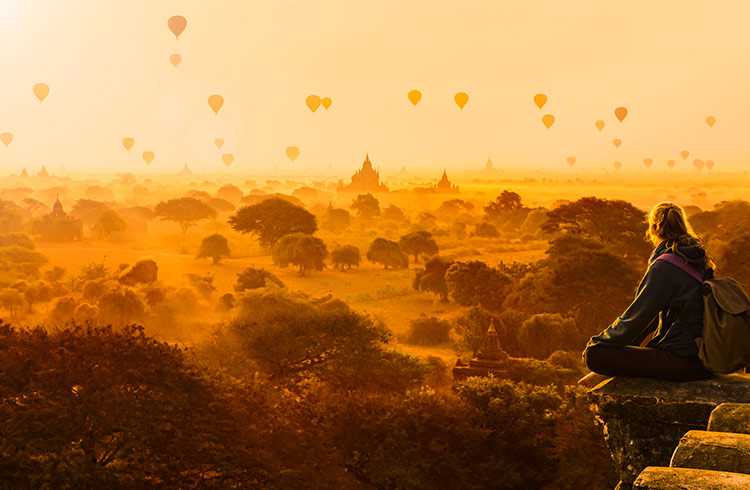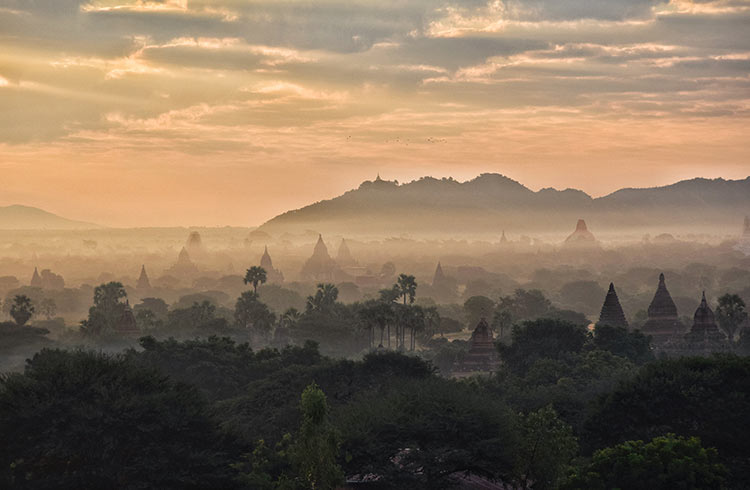LGBTQ+ Travel in Myanmar – What To Know Before You Go
Find out where LGBTQ+ travelers will feel most welcome and where to exercise caution in Myanmar, the legal status for locals, plus a few other travel safety tips from our expert, Ed Salvato.
 Photo © iStock/ugurhan
Photo © iStock/ugurhan
Myanmar had become a hot destination, especially among LGBTQ+ travelers who were thunderstruck by the evocative photos posted by their enviable friends who've already visited. Since the coup and political clampdown which coincided with the pandemic, travel to this country has been greatly curtailed.
While it's illegal to be gay there, we've found the culture to be far more accepting than other countries in Asia which ban homosexuality, including Malaysia, Sri Lanka, the Maldives, and India.
- LGBTQ+ friendly places
- Where to be cautious
- Legal status of LGBTQ+ locals
- Current attitudes towards LGBTQ+ visitors
- Current attitudes towards LGBTQ+ locals
- LGBTQ+ travel safety tips
- Resources
LGBTQ+-friendly places
Most visitors stay on the fairly well-trodden tourist trail, which includes Mandalay, Bagan, Inle Lake and the former capital Yangon. These spots are all so accustomed to tourists, that LGBTQ+ travelers should have no problems here.
While there are no LGBTQ+-exclusive establishments, Yangon is where the bulk of the community lives.
Where to be cautious
LGBTQ+ people are rarely out, the country is devoutly Buddhist, and most Burmese people tend to think of gay men as men who want to be women or dress like women. Some locals believe that those who conducted sexual misconduct in a previous life are gay in this one. But attitudes are slowly changing.
Aung San Suu Kyi, the pro-democracy activist, and the country’s deposed leader, has spoken out against Myanmar's antiquated anti-LGBTQ+ laws. There have been pride festivals and film festivals — but on a very small scale.
In the rural areas, the locals are not used to seeing LGBTQ+ people. That said, Robert Sharp, owner of LGBTQ+ tour company Out Adventures, reports, "groups have experienced some very interesting conversations in rural areas, where locals are curious and just want to know more."
Legal status of LGBTQ+ locals
A holdover from British colonial days, homosexuality is illegal in Myanmar with punishment including 10 years’ imprisonment. The law is rarely enforced, but it can be used as an excuse to harass LGBTQ+ locals.
There are also other laws that can negatively impact the LGBTQ+ community, from sodomy laws to restrictions against participating in a marriage that is not considered “legal”, i.e., same sex. Many of the laws are quite conservative, and can also cross over to various sexual identities, as well as making, selling or distributing “obscene” material, i.e., pornography.
Current attitudes towards LGBTQ+ visitors
Two men or two women together are mostly viewed as just friends. More sophisticated Burmese, however, will understand the nature of the relationship but won't react, especially those in the hospitality field.
Though the culture is welcoming overall, with respect to gay travelers it's more like tolerated, not so much enthusiastically embraced.
Current attitudes towards LGBTQ+ locals
With many exceptions, it is still shameful for a family to have a child that identifies as LGBTQ+. It is still a conservative culture, especially after being under strict military rule for decades, where media could not openly report on LGBTQ+ issues, and LGBTQ+ people could not legally organize.
LGBTQ+ travel safety tips
- When choosing safe and welcoming hotel accommodations, stick with boutique hotels or international chains, such as the Shangri-La.
- Your hotel may slip up in terms of your accommodations, not realizing two men or two women traveling together may be a couple, or by asking where their husbands or wives are. Call or email ahead to ensure the room is set up how you require. Be patient. They're not used to LGBTQ+ travelers.
- Avoid public displays of affection, which are culturally taboo for everyone (not just queer people).
- Intimacy among Burmese men is most often a sign of familiarity, not of homosexuality.
- For lesbian travelers, note that the Burmese are extremely respectful of women. Any attention is likely to be out of curiosity because you're a foreigner, but it is well known they are not in any way aggressive to women. That said, exercise the same caution you'd use back home.
- Dating apps, especially Grindr and Hornet are often the best way to find out about LGBTQ+ venues, nightlife and events. Just beware of prostitution, which can lead to trouble for travelers and locals alike.
- Dress modestly covering knees and shoulders, especially when visiting temples.
Resources
Myanmar is a challenge logistically, especially if you go overland (as opposed to an all-inclusive river cruise). Work with an international tour operator. We highly recommend OUT Adventures which has been organizing trips there for years.
Venture Out launched its first Myanmar adventure in 2018.
The NomadicBoys, a blog produced by a young well-traveled gay male couple has extensive up-to-date information on the country and its queer life.
Related articles
Simple and flexible travel insurance
You can buy at home or while traveling, and claim online from anywhere in the world. With 150+ adventure activities covered and 24/7 emergency assistance.
Get a quote
1 Comment
This is an interesting article, but might I suggest changing the name?? The title of this article is "How safe is Myanmar for LGBT travellers?" and yet, there is no mention on safety for the T aspect of the LGBT acronym in this post.
As a Transgender individuals my issues and anxieties about travelling to Myanmar don't rotate around PDA's or sharing a room with my partner, it's more a case of am I going to be safe presenting as myself? Will I be arrested for simply existing in the country? And will I have a safe trip including at the airport where the airport security will see 'M' on the passport of someone who looks like an 'F'.
It's just tiring to see these articles that are supposedly directed towards "LGBT" individuals, when the content of the articles are always only specifically focusing on the LG and B.